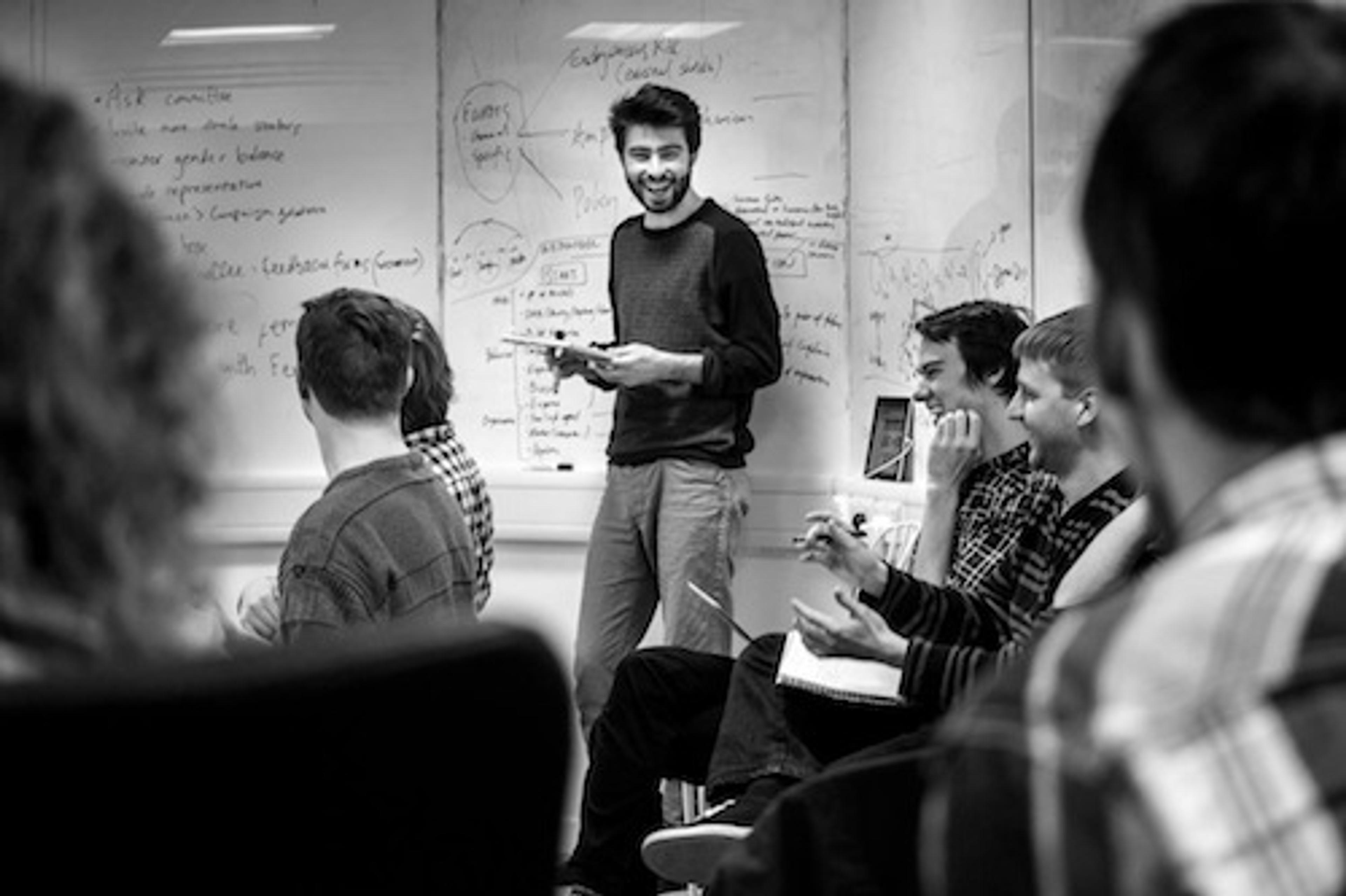Chapters, for me, do two things really well: first of all, they are a brilliant and very personal form of outreach. Secondly, they're a community. Whereas there are good general Effective Altruism Facebook groups, contact online is very different to making like-minded friends in person, and chapters have always been a brilliant way to meet other members in my city and university.
Thanks to the efforts of Jonathan Courtney, we manage to do even better than this on chapter days, such as that held last month. Members of any chapter who could make it to Giving What We Can's offices in Oxford joined to meet, swap ideas, and work together on improving our efforts.
It was, firstly, hugely productive: the Oxford chapter has come out with an intimidatingly large list of action points. Secondly, it was hugely encouraging. I met some great people and, hopefully, made some good friends. Chapter days cannot be recommended enough.

We met members working hard in Birmingham, Manchester, Warwick, London, Cambridge, Bristol, and Exeter, and spent our time swapping ideas and comparing notes on what has and hasn't worked for us. We structured this around four main discussions, on diversity, the New Year's pledge event, and events done at Warwick and Manchester, and through these presentations came up with both specific and general improvements chapters can seek to make.
For me, two overriding conclusions came out of the discussion. Firstly, I was impressed by the sheer range of successes chapters have achieved. Most notable was Ravi Patel's talk on the pledge event he ran at the New Year, in which people were encouraged to take the Giving What We Can pledge as their New Year's resolution. He focused this on a Facebook page, containing, amongst other things, a fantastic video promoting the campaign, and snippets of the huge range of media that reported on the campaign, including national broadsheets. It attracted about 150 pledges total – an astounding achievement. Needless to say, there is much to learn from a campaign this successful, both for future repetitions of it and in general lessons that apply to all chapters projects.
This isn't to do down the unbelievable breadth of events other chapter have managed: Warwick are just completing a project in which professors (including, to my nerdy excitement, Adam Swift, gave 10% for a month and then reported back on what it was like, which functions both as a chance to get them more involved, and to gather testimony on what giving 10% away is like.
Manchester told us, on a very different scale, of the effectiveness of their smallest events: specifically showing Peter Singer's classic TED talk to a small, keen audience then taking questions, which astoundingly led to almost everyone there getting involved in Giving What We Can further.
The message was clear: as events VP at Oxford, I've got to step up my game to match this lot.
Secondly, I was repeatedly struck by the huge benefits of collaboration and communication. Obviously, within chapters constant discussion and updates between committee are essential to smooth operation. But the value of communication around the country and the world between our members kept on boomeranging back to us throughout the day.
For instance, in the gender balance and diversity discussion, we discussed some of the reasons why Effective Altruist societies should aim to attract more diverse people, and discussed ways of doing this. Furthermore, chapters broadly showed a need to gather more detailed data on their effects, and so we proposed a joint database of data relevant to gender balance to enable us to identify problems more accurately from a big data set and to, on that basis, exchange our solutions.
Similarly, we are already sharing loads more content on the chapters' Facebook group which we can all share on our pages, sharing event plans and presentations through google drive, and supporting each other's social media campaigns.
Between all the chapters in the room, we had scored huge successes in all areas and, most importantly, had all got loads of new members involved in Giving What We Can. But all chapters also had much to improve and work on, and I know that the advice swapped has given Oxford lots of ways to approach the improvements we need to make.
More importantly, though, for those involved in Giving What We Can, discovering that there are so many brilliant people working towards similar goals and getting to meet them is by any standard a fantastic day.